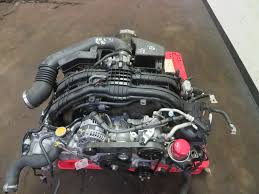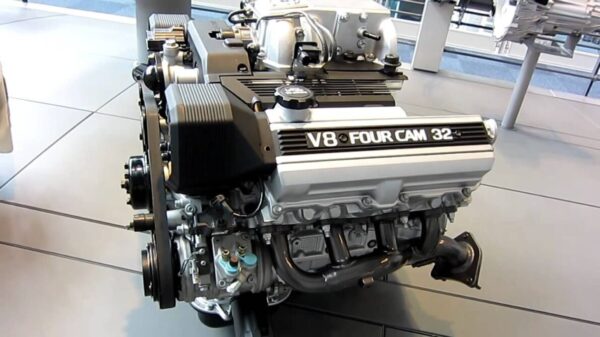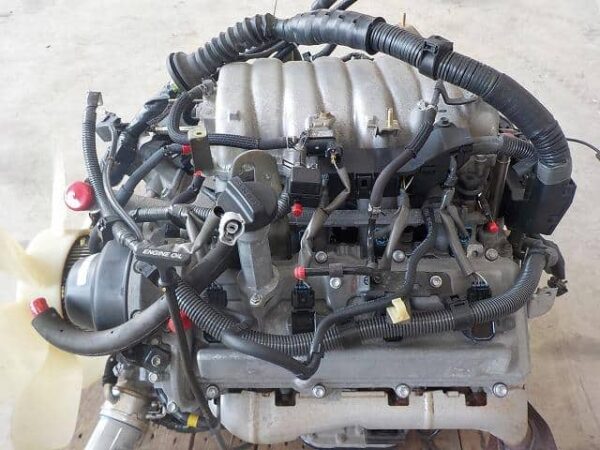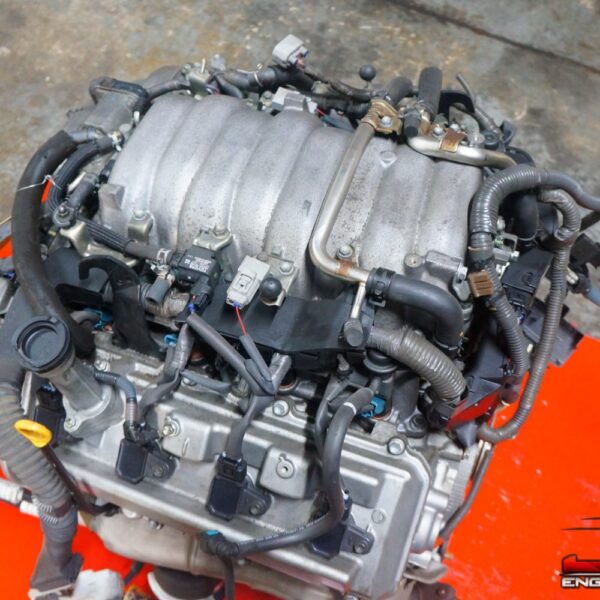FB20 2.0L Engine | Subaru Specs, Performance, & Reliability
FB20 2.0L Engine | Subaru Specs, Performance, & Reliability
Explore the Subaru FB20 2.0L engine specs, performance, reliability, common issues, and applications. Learn everything you need to know about this engine.
- 6 Months warranty
- Delivery time: 1-2 business days
- Free 90 days return
Description
Description
🔧 Subaru FB20 2.0L Engine Overview
The Subaru FB20 is a 2.0L, naturally aspirated 4-cylinder boxer engine designed by Subaru as part of their FB series. It replaced the earlier EJ series engines, offering improved fuel efficiency, lower emissions, and increased reliability. This engine is commonly found in Subaru’s compact models, including the Subaru Impreza and Subaru XV, as well as some models in the Subaru Forester lineup.
🔍 Key Specifications
-
Engine Code: FB20
-
Displacement: 2.0L (1995cc)
-
Configuration: 4-cylinder Boxer, DOHC, 16-valve
-
Fuel System: Multi-Point Fuel Injection (MPI)
-
Compression Ratio: 12.0:1
-
Power Output: ~148 hp (110 kW) at 6,200 rpm
-
Torque: ~196 Nm (145 lb-ft) at 4,200 rpm
-
Fuel Type: Regular unleaded petrol
-
Fuel Economy: ~8–9L/100km (depending on model and driving conditions)
-
Emissions Standard: Euro 5 or equivalent (market-dependent)
🚗 Common Vehicle Applications
-
Subaru Impreza (2012–present)
-
Subaru XV (2012–present)
-
Subaru Forester (2012–present)
-
Subaru BRZ (in some markets)
The FB20 engine is often paired with Subaru’s Symmetrical All-Wheel Drive (AWD) and a CVT (Continuously Variable Transmission), offering a balance between performance and fuel economy.
🔧 Reliability & Common Issues
The Subaru FB20 engine is generally known for its reliability and fuel efficiency. However, as with any engine, there are potential issues to watch for:
-
Oil consumption: Some owners report minor oil consumption issues, especially as the engine ages. Regular oil changes and monitoring oil levels can mitigate this.
-
Head gasket issues: Although less frequent than with previous Subaru engines, head gasket leaks can still be a concern if the engine is not properly maintained.
-
Timing chain: The FB20 uses a timing chain, which should last the life of the engine, but premature wear can occur if maintenance is neglected.
-
Cooling system: Like all engines, the FB20’s cooling system should be checked regularly to prevent overheating or damage to the engine.
✅ Pros of the FB20 Engine
-
Fuel efficiency: With improved fuel economy over previous Subaru engines, the FB20 is a great choice for those looking for better gas mileage.
-
Low emissions: Designed to meet stricter environmental standards, the FB20 is more eco-friendly compared to earlier models.
-
Durable and reliable: Subaru’s Boxer engine design is well-regarded for its reliability when properly maintained.
-
Smooth operation: The horizontal layout of the Boxer engine reduces vibrations, providing a smoother driving experience.
⚠️ Cons of the FB20 Engine
-
Less powerful than turbocharged engines: Although it’s efficient, the FB20 lacks the power of Subaru’s turbocharged engines, such as the FA20 or EJ20, which might be a drawback for performance enthusiasts.
-
Oil consumption: While generally not a major issue, some owners report minor oil consumption, which requires regular monitoring.
🛠️ Tuning Potential
The FB20 engine is a solid performer, but if you’re looking to enhance its power, there are several tuning options available:
-
Cold air intake: This can help improve airflow into the engine and increase overall engine efficiency.
-
Exhaust system upgrades: A performance exhaust can help the engine breathe more freely, improving both power and sound.
-
ECU remapping: Tuning the engine’s ECU can optimize the air/fuel ratio, timing, and fuel delivery for more power.
However, significant power gains will require more substantial modifications, such as turbocharging or supercharging, which might require additional engine strengthening.
🧠 Fun Fact
The FB20 engine is part of Subaru’s newer generation of engines, designed with greater fuel efficiency and reduced emissions, making it a good choice for drivers looking for a balance between everyday performance and environmental responsibility.







Reviews
There are no reviews yet.